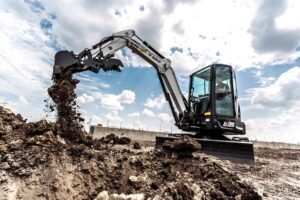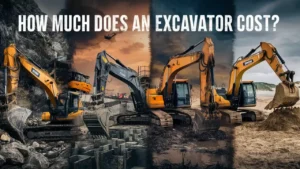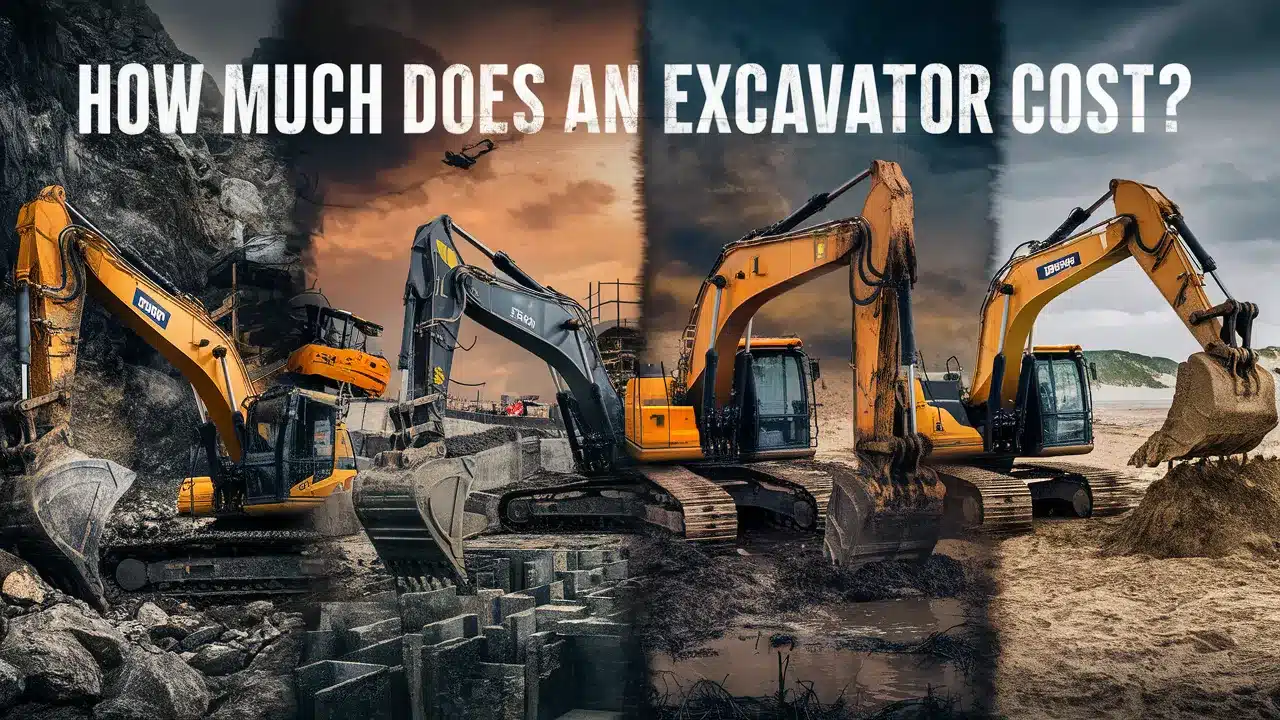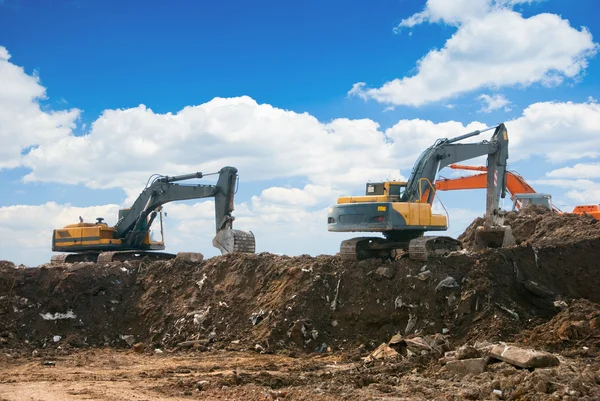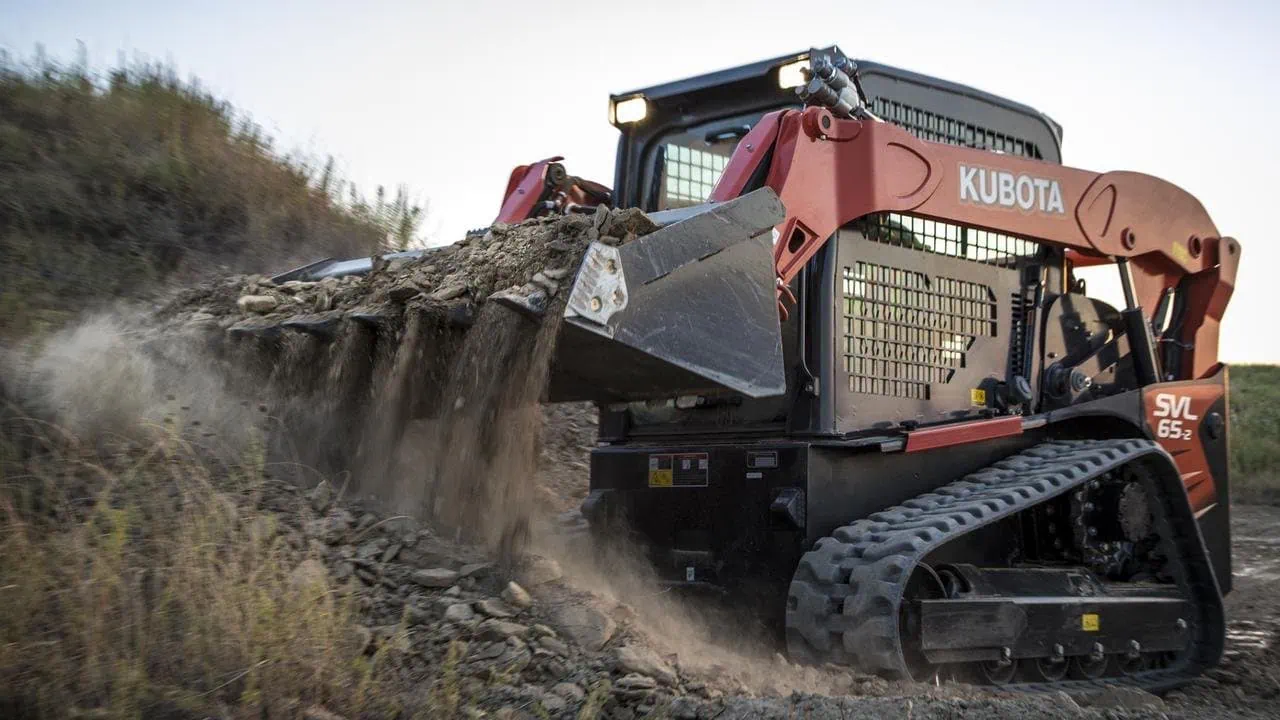Table des matières
BasculerIntroduction
Understanding how much you can sell a used wheel loader for and how fast its value goes down is super important. It helps construction workers make smart choices and get the best deal. Resale value is all about how much you can sell something used for.
Depreciation rates show how fast its value drops over time. Things like brand name, age, how well it’s been looked after, and how much people want it to affect these things. There are simple ways to determine how much something has depreciated, like straight-line or declining balance methods.
To get the most money back when selling, keeping the wheel loader in good shape, keeping records, and maybe adding some new features is important. Knowing what’s happening in the market right now is also good. This article is about making it easy for construction workers to understand these things when dealing with used wheel loaders.
Why Is Resale Value Important for Used Wheel Loaders?
Why Resale Value Matters for Used Wheel Loaders
Resale value is like knowing the worth of your used wheel loader. It helps you understand how much money you can return when you sell it. For construction workers, this is vital because it affects their budget for buying newer equipment.
Understanding Resale Value
Resale value simply tells you how much you can sell something used for. So, when selling a used wheel loader, knowing its resale value helps predict how much money you’ll get in return.
The Importance for Construction Workers
Imagine buying a wheel loader and later selling it for a good price. That means you’ll have more money to invest in a better one. But if the resale value is low, you might lose money. So, knowing the resale value helps construction workers make wise decisions.
Factors Affecting Resale Value
Several things determine the resale value of a wheel loader. These include the brand name, how old it is, how well it’s been maintained, and how much demand there is for it. These factors can help construction workers get the best deal when selling their used wheel loaders.
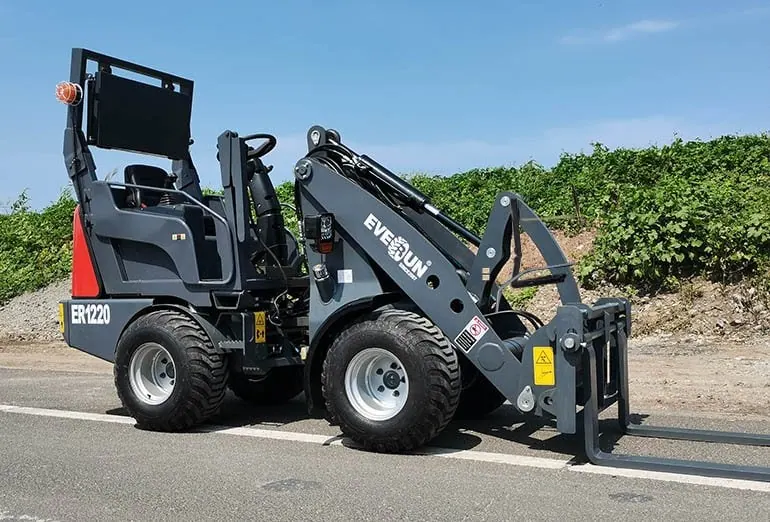
What Factors Influence the Resale Value of Used Wheel Loaders?
Factors Affecting Resale Value of Used Wheel Loaders
- Brand Reputation: Well-known brands are trusted for quality and reliability, which can lead to higher resale prices.
- Age and Condition: Newer wheel loaders in good shape usually sell for more than older, worn-out ones.
- Maintenance History: Regularly serviced and well-documented maintenance can increase a wheel loader’s resale value.
- Market Demand: The demand for certain wheel loader models can change based on industry trends and economic conditions, affecting resale prices.
- Features and Technology: Wheel loaders with advanced features and technology often sell for more due to increased efficiency and performance.
How Do Depreciation Rates Affect the Value of Used Wheel Loaders?
Depreciation rates are like the speed at which a wheel loader loses its value over time. Let’s dive into how this affects the value of used wheel loaders:
Understanding Depreciation
Depreciation is how much a wheel loader’s value decreases as it gets older or is used more. It’s like when a car loses value as you drive it more.
Effect on Value
High depreciation means the wheel loader loses value quickly. So, if you buy a wheel loader that depreciates fast, you might not get back as much money when you sell it later.
Factors Influencing Depreciation
The initial price you paid for the wheel loader, how much you use it, and market conditions affect depreciation rates. If you buy a cheaper wheel loader or use it a lot, it might depreciate faster.
Calculating Depreciation
There are different ways to calculate depreciation, but the goal is to determine how much value the wheel loader loses yearly. This helps you estimate its worth over time.
Impact on Buyers and Sellers
Knowing depreciation rates helps buyers understand how much they might lose in value over time. For sellers, it’s important to consider depreciation when setting prices to ensure they get a fair deal.
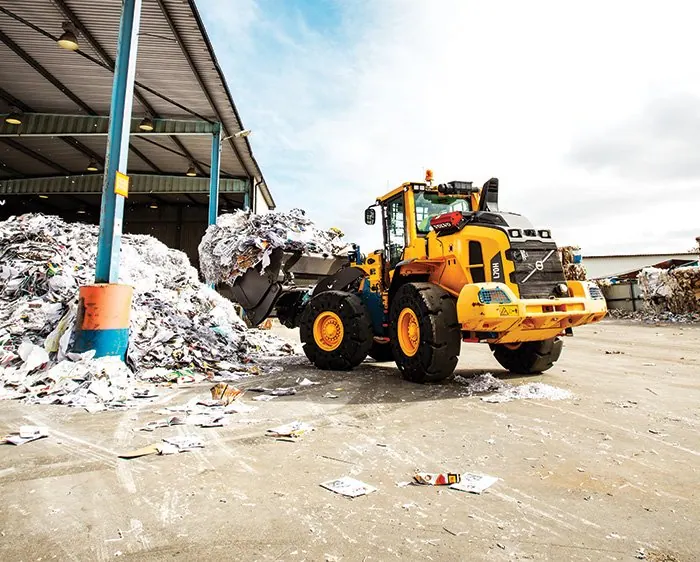
What Methods Can Be Used to Calculate Depreciation for Wheel Loaders?
There are a few ways to determine how much a wheel loader decreases in value over time. Let’s look at them:
Straight-Line Method
This way is simple. It’s like drawing a straight line from how much the wheel loader cost when you got it to how much it might be worth when it’s old. Then you split the difference by how many years it’s supposed to last.
Declining Balance Method
With this method, you figure out how much the wheel loader’s value decreases each year by a fixed percentage of what’s left. As the value decreases, the amount it decreases also gets smaller.
Sum-of-the-Years’ Digits Method
This one looks at how many years the wheel loader will be useful. You add up the numbers for each year, which is useful, then divide the remaining years’ numbers by that total to find out how much it goes down each year.
Units of Production Method
This method looks at how much the wheel loader is used. You figure out how many things it can do over its useful life, then divide its cost by that total to find out how much it decreases in value for each task it does.
How Can Sellers Maximize Resale Value for Used Wheel Loaders?
You want to get the most money possible when selling a used wheel loader. Here’s how you can do that:
Keep It Well-Maintained
Make sure your wheel loader is in good shape by doing regular checks and maintenance. This includes changing fluids and filters so everything works well.
Keep Good Records
Keep track of all the maintenance and repairs you’ve done. Having this info shows buyers that you’ve taken good care of the wheel loader, which can make them more willing to pay a higher price.
Fix Problems Early
If there are any issues with the wheel loader, fix them as soon as possible. Fixing problems early can prevent them from worsening and costing you more money later.
Upgrade if Needed
Consider upgrading certain parts or features of the chargeuse sur pneus to make it more appealing to buyers. This could involve putting on new tires or adding modern technology.
Store It Properly
When you’re not using the wheel loader, store it in a safe place where it won’t get damaged. Keeping it clean and protected from the weather can help maintain its value.

What Are the Current Market Trends and Insights Regarding Used Wheel Loaders?
- Growing Demand for Compact Wheel Loaders: More people want compact wheel loaders because they can work in small spaces. This is especially important for construction jobs in cities with little room.
- Preference for Low-Hour Machines: Buyers like wheel loaders that haven’t been used much. These machines are seen as better because they haven’t been worn out as much, so they sell for higher prices.
- Shift to Online Sales Platforms: More and more people buy and sell wheel loaders online. Websites make it easy to find what you’re looking for and sell your equipment without going to a physical location.
- Focus on Fuel Efficiency and Emissions: People care about how much fuel a wheel loader uses and how much pollution it makes. Machines that use less fuel and pollute less are becoming more popular because they save money and are better for the environment.
- Technological Advancements: Wheel loaders are getting more advanced with features like GPS tracking and automated systems. These make them work better and safer, which is important to buyers.
Can Case Studies Offer Practical Insights Into Resale Value and Depreciation Rates?
Understanding Maintenance’s Impact
Case studies show how handling a wheel loader affects its resale value. For instance, one study might compare a well-maintained loader with detailed records to one that wasn’t looked after. Comparing their values helps us understand why maintenance matters.
Seeing Market Demand’s Influence
Case studies also teach us how market demand affects resale value. For example, if there’s a lot of construction work in an area, the demand for wheel loaders might be high, leading to higher resale prices. Looking at case studies helps us understand this connection.
Learning from Others’ Experiences
Overall, case studies teach us important lessons by showing what worked and what didn’t in real-life situations. By learning from others’ experiences, we can make smarter decisions when buying or selling wheel loaders.
How Should Buyers and Sellers Navigate the Future Outlook for Used Wheel Loaders?
Keeping Up with Industry Trends
Stay informed about what’s happening in the industry. Watch out for new technologies and changes in what people need.
Considering Fuel Efficiency and Emissions
Think about how fuel-efficient the loader is and what emissions rules it follows. These things can affect how much it’s worth in the future.
Checking Maintenance Records
Make sure to keep good records of any repairs and maintenance. This can help you get a better price when you sell it later.
Staying Flexible
Be ready to change your plans if the market changes. Flexibility can help you get the best deal when buying or selling a used wheel loader.

Where Can Readers Find Additional Resources on Resale Value and Depreciation Rates of Used Wheel Loaders?
- Industry Magazines and Websites: Look at magazines and websites about construction gear. They often have articles and guides about buying and selling used gear.
- Online Chat Groups and Forums: Join online groups where construction folks talk about gear. You can ask questions and get advice from others who know about wheel loaders.
- Manufacturer Websites: Many gear makers have information on their websites about how much their stuff is worth over time. They might also have tools to help you determine these values.
- Construction Associations: Consider joining groups related to construction or gear. They often provide resources and information for members about things like resale value and depreciation rates.
Conclusion
Knowing about resale value and depreciation rates for used wheel loaders is super important for construction folks. It helps you make smart choices when buying or selling gear. Resale value is like how much cash you can get for something used.
Depreciation rates show how fast its value goes down over time. Things like brand, age, and maintenance affect these values. Keeping an eye on trends, keeping good records, and being ready for changes are key. Magazines, online groups, and manufacturer websites have helpful info. You can get the best bang for your buck with used wheel loaders by staying informed and making good decisions.
FAQ
What to Look for When Buying a Used Loader?
- Check maintenance records
- Inspect for wear and tear
- Test functionality of key components
- Consider age and usage history
What Are the Disadvantages of Buying Used Equipment?
- Higher risk of breakdowns
- Limited warranty or guarantee
- Potential hidden issues
- Lower efficiency or performance compared to new equipment
What Is the Useful Life of a Wheel Loader?
- Typically ranges from 10,000 to 20,000 hours
- Depends on maintenance and usage
- Can vary based on operating conditions and environment

